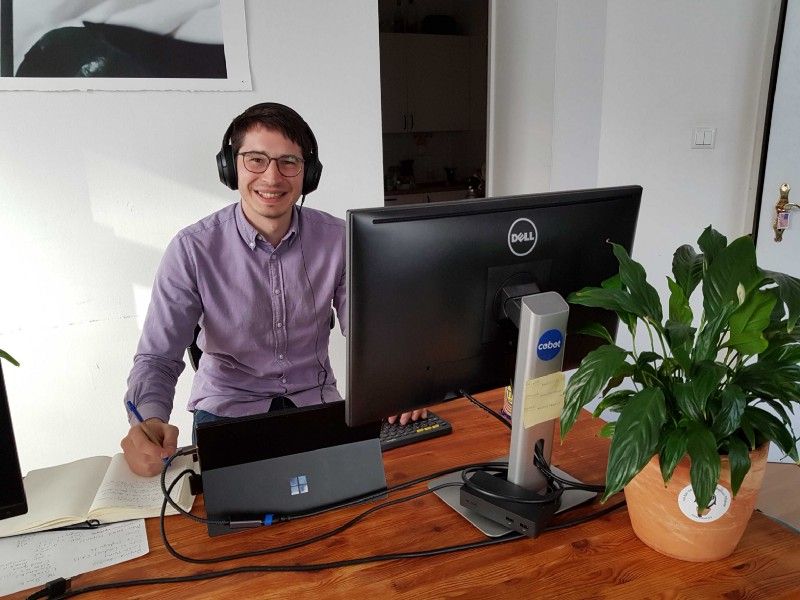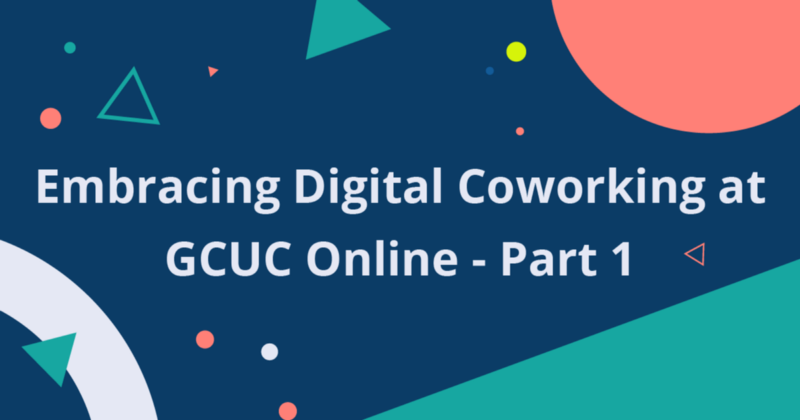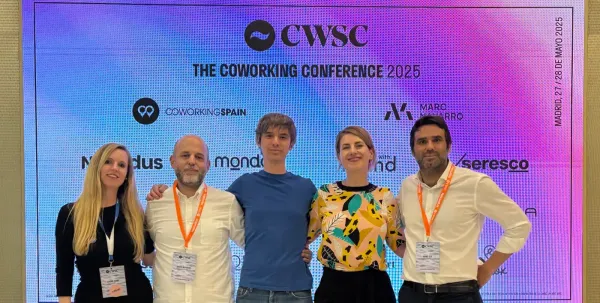For years, technology experts have paid lip service to the potential of large online events, particularly conferences, as a way to make them both more accessible and environmentally friendly. The coronavirus pandemic has forced us to start living in the future we’ve been speculating about for years. GCUC was originally scheduled to hold a conference in Seattle from April 21–23, and while the organizers made it clear that they still plan on hosting an in-person event soon, we were happy to join the live online event on the original starting date, April 21st.
“What really counts is not what we do when times are easy, but how we react when times are hard” -Tony Bacigalupo

Taking stock of the format
Major changes are often accompanied by proportionally large growing pains. Given that expectation, I logged in fully expecting technical issues, and prepared myself to be patient and forgiving with the results of moving such a complex event fully online. Luckily my concerns were unfounded; the organizers skillfully ran the event without a hiccup — or at least, none that I noticed!
The speakers were crystal clear and while some presenters needed a second to gain control of their slides, overall, listening to the presentations online was preferable to listening to presentations in-person. It was less of a hassle to see the slides, easier to ask questions, and the speakers’ personalities came through much stronger.
After the main speakers, we divided into smaller groups for a cocktail hour. I loved this format; one thing I would suggest for similar events in the future would be more opportunities to be divided into small groups (ideally with five to ten participants), giving folks enough time to mingle and trade stories.
Observing the industry from above — how will coworking be affected by the crisis?
After a brief introduction and housekeeping, no time was wasted in getting straight to the content that mattered. Jean-Yves Huwart from Coworking Europe and Carsten Foertsch from Deskmag led Coworking, COVID and the Future, discussing the on-the-ground situation in Europe as well as data about how the wider economic downturn is affecting (and will continue to affect) coworking spaces. The results were a blend of optimism and realism.
Spaces are finding creative ways to protect their members and reopen amidst the new necessity for social distancing. Jean-Yves Huwart detailed a few of these methods, including:
- Distributing individual sheets of paper to members when they walk in, to place down at their desk before the start working.
- Constructing plexiglass “cubes” around each desk.
- Converting event and meeting rooms into well-separated desk space.
“Things that we were expecting to take years will now take months.” -Jean-Yves Huwart
Carsten, unlike Jean-Yves, has been working from a coworking space throughout the pandemic; in Germany, offices were never forced to closed. He speculated that urban workers with children and families will likely be among the first to return as soon as it is feasible, as they’re already finding ways to get back to their workplaces despite challenges. Suburban and rural workers are likely to take longer, as they often have more space and are less affected by lockdowns than cramped city-dwellers.
The spaces hardest hit with the longest period of difficulty will likely be those that rely on tourists and digital nomads. These lifestyles are going to be severely curtailed for a much longer time than other groups. Spaces that rely on flex desks and event spaces are also in for hard times — they’ll have to find new revenue streams or expand their existing offerings to survive.
So will this crisis will ultimately be good for coworking, or mixed?
Jean-Yves is optimistic. He shared a story of a space in Shanghai that was allowed to reopen in March; they started the month at 15% occupancy and ended it at 100%. He stressed that it’s hard to draw conclusions right now, but that this could be an auspicious sign for coworking elsewhere.
In contrast, Carsten stressed that while he agrees that this will be a long-term boon for coworking, many of us will not be there to see it. The upcoming six to eighteen months are going to be difficult for everyone, even successful spaces.

Black Swans and Coworking
Who would have better insight into the ways that the coronavirus will affect coworking than a researcher who has worked on modeling coworking trends as well as pandemic preparedness? That would be researcher Steve King, who led the session Black Swans and COVID-19 Pandemic. He stressed that the current level of uncertainty is much higher than anything he’s analyzed before, but that there are some useful heuristics he uses to make estimations about how the pandemic will affect coworking in the short and the long term.
If you look at which trends are accelerating and which trends have reversed course, remote work has been a definitive “winner” of the pandemic. Almost overnight, remote workers went from accounting for 7% of the workforce to 30%. That is an extremely positive trend for the long-term growth expectations in coworking, and it gets better when you look at “soft” trends like the shift towards seeking flexibility and offsetting risk by avoiding long-term rental contracts.
These numbers will bounce back somewhat when there is a vaccine, but they will never go back to how they were before. With this said —positive trends are not evenly distributed, and the percentage of remote workers who are frequent travelers or digital nomads has plummeted, and they are unlikely to return soon.
Overall, King’s forecast was similar to that of the previous talk; long-term trends are great for coworking spaces, but the next year or so is going to be incredibly difficult, and spaces that want to survive are going to have to fight to make it to those better times.
Read more in the next part of our GCUC Online recap!

If you aren’t already using Cobot as your coworking management software, give it a go! You’ll find that our features can help you run your coworking space more effectively and grow your community. Just sign up for a free trial or a live demo session. And if you have questions, our support team is all ears!
Happy Coworking!



